[toc]Growing up, you probably despised the idea of eating that red hard thing.
Now, it’s the thing to eat to get hard.
Or at least, that’s what a lot of men are alleging. It’s one of the lesser known purported side effects (or benefit, depending on your circumstances) of drinking red beet juice. SuperBeets does not make any health claims, but search for the keyword “ED” and similar on the Amazon product page to see what reviews say.
How it all started
If you search for beet juice clinical studies on PubMed.gov, you will find dozens. But most of those are just from the past few years.
The buzz really began around a decade ago. Before SuperBeets and other supplements went mainstream, the American Heart Association published a study in their journal Hypertension (1).
- Healthy men and women participated
- They were randomized to get either 500 ml (about 17 ounces) of either water or red beetroot juice.
- Blood pressure was monitored beginning 1 hour before and up to 24 hours after.
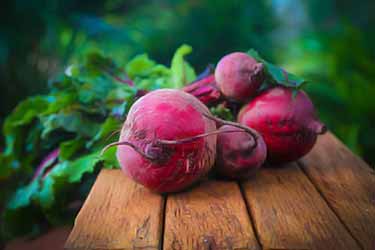
“This bioactive nitrite substantially decreases BP [blood pressure], inhibits platelet aggregation, and prevents endothelial dysfunction in healthy volunteers.”
In plain English…
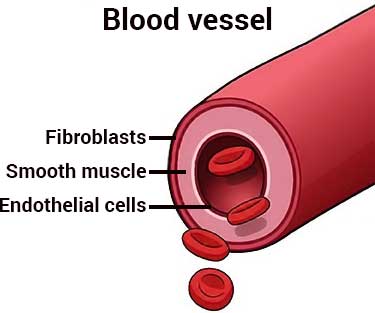
Platelet aggregation = Blood clotting. Some is healthy for you, but not too much.
Endothelial dysfunction = Your blood vessels are lined with endothelial cells. Dysfunctional is when they don’t dilate as much as they should. This is a good predictor of heart attacks and strokes. It’s also highly correlated with rates of erectile dysfunction in men (3).
More studies, more questions
The lowering of blood pressure was with healthy people, how about those who are not in ideal health to being with?
In “older overweight and obese” people, a 2015 study found that endothelial function did not improve (4). It involved only 7 men and 3 women, who were an average age of 62 and a BMI of 30.5.
Though an earlier 2013 study found it did have a positive effect on nitric oxide bioavailability and improved endothelial function (5). However a difference was that the 20 overweight men in this study drank their red beets with a meal containing 56.6 grams of fat.
That would suggest some beneficial compounds in the juice may be fat soluble, and hence, are better absorbed when consumed with food rather than on their own.
In a 2015 study, drinking the juice for 7 days did not affect blood pressure one way or another in older overweight adults (6).
However the 2012 Australian beetroot juice blood pressure study found it did lower it, but by a less impressive amount than the 2008 study… a reduction in systolic by 4 to 5 mmHG (7). A similar 2014 study found a benefit but “not significant changes” (8).
In patients with COPD, a 2015 study found the resting systolic blood pressured was “significantly reduced” by 8.2 mmHg versus placebo (9).
One of the largest studies was published in 2016 by the American Journal of Clinical Nutrition. It used more people (69 in total) and they were healthy, except for having high cholesterol (10).
After receiving a nitrate-rich beetroot juice for 6 weeks, there was a small decrease of a few points seen in both systolic and diastolic blood pressure, but it was not enough to be statistically significant.
Better beetroot juice benefits?
Make no mistake about it, having healthy blood pressure is extremely important. However given the evidence to date, there is not adequate evidence this is happening with beets, especially in those who need it most (unhealthy people). Even if it is happening, the improvement appears to be minimal when you average out the results.
Maybe the more significant benefit is in vascular function.
Even though that 2016 study didn’t claim it improves blood pressure, it did claim:
“Dietary nitrate caused a 7.7-fold increase in circulating nitrate concentrations after 3 h with an identical rise after 6 wk”
Several functions related to vascular health were improved including aortic pulse wave velocity and reductions in platelet-monocyte aggregates and P-selectin expression. There were no adverse side effects detected.
But why drink beets versus a nitrate supplement?
Because it appears the juice benefits your good oral bacteria. Those – not your digestive tract below – are the first step in nitrate reduction.
It’s not nitrate which we need, but nitrite. The bacteria in your mouth convert the nitrate to nitrite, then that converts to nitric oxide (NO). It is NO which our body uses and is linked to health benefits.
It wasn’t just the 2016 study that reported healthier oral bacteria. For the other studies which measured this parameter, they too reported it.
On the topic of oral bacteria, it’s why Listerine might be bad for you. Or more accurately said, it may be good for you at the right times, but you may not want to be using mouth wash before you work out or make love (at least if you’re a man who needs help with ED).
Look at what happens from using antibacterial mouthwash twice daily for a period of a week (11).
The nitrite levels plummet in salivary samples (graph A), blood samples (B), and urine samples (C).
The brand of the mouth wash used in this University of London study was not identified, but it likely would make no significant difference anyway. The problem seems to be with the use of antiseptic mouthwash in general.
Now here’s where it gets even more interesting. This same study had also taken readings for blood pressure throughout the 7 day period.
Look at the correlation between systolic blood pressure and mouthwash use!
But that was over a period of a week. Some of the studies are shorter or longer. What does the effect of mouth wash look like in the short term?

“The removal of these bacteria with an antibacterial mouthwash will very likely attenuate the NO-dependent biological effects of dietary nitrate.”
Does beet juice lower blood pressure? It appears too early to conclusively rule out this benefit.
Yes, as mentioned, the averaging of studies suggests it has little to no impact on systolic or diastolic, however those may be flawed studies if they’re oblivious to this mouthwash variable. We didn’t notice any of them mention mouthwash, which would suggest they were not aware it may affect the results.
They need to either forbid the use of antibacterial mouthwash during the research or require everyone to use it. Nothing in between.
How important is NO to your health? Well consider this… the 1998 Nobel Prize was for the research showing its important role as a signaling molecule in cardiovascular health (13).
YES, you may need more NO
While the data for lowering blood pressure is a mixed bag, there is much more evidence as to how beets boost nitric oxide levels naturally.
Physical performance
Before we talk about that other type of physical performance (erectile dysfunction) let’s talk about how it may help you perform at the gym. On the track. Or your surfboard in the Pacific ocean.
Running

- Increased plasma nitrite by 105%.
- VO2 max decreased by 7% during moderate and severe intensity running.
- Time until failure increased by 15% for severe intensity running and 5% for the knee extension exercises.
- The 02 cost of walking was reduced by 12 to 14%.
- Significantly reduced systolic blood pressure by 4% relative to placebo (129 vs 124), while the diastolic change was not significant.
But that was over 30 years ago, how about more recent data about runners using beet juice?
A 2012 study claims it “acutely improves running performance” (16)
Others don’t paint such a flattering picture.
A 2014 study said it “does not improve performance” for the eight male runners they tested in a 1,500 meter time trial (17). There were no VO2 differences with placebo. Only 2 out of the 8 runners who received the juice had an improvement in time.
A 2015 study concluded the red beet supplements “do not enhance altitude running” (18). Another that year pitted beetroots against sodium phosphate and actually found it was the latter which helped female runners more (19).
Rowing
A 2014 study involving 10 highly trained male rowers (20). Two hours before undertaking a 2,000 meter test, they were given a single or double shot juice dosage, or a placebo version which had the nitrate removed.
How much beet juice should you drink? The results here suggest a dosage dependent relation; the more you take, the more it may it help strength and endurance. This is because the single shot dosage (about 2 ounces) was insignificant, but those on a double dosage (about 4 ounces) had a slightly reduced rowing time.
Kayaking

They were given various tests and 2 hours before each, they received store bought shots of beet juice (about 2.4 ounces each) or a placebo.
For the men, the improvements were most noticeable in the tests which relied on aerobic energy.
For the women receiving a double dose, it resulted in better time.
Cycling
Among all sports, this appears to have been studied the most.
In one study, just a single shot dosage of beetroot juice lowered VO2 max and improved time in trained cyclists at a simulated altitude of 2,500 meters (8,200 feet) (22).
Another study found that while it can increase muscle oxygenation, the benefits were only noticeable at higher pedal rates (23). They were tested at speeds ranging from 35 to 115 rpm.
Meanwhile there are two other cycling studies which found that a single dose provided “no improvement” in endurance or high altitude environments (24) (25). These pour cold water on the theory of beet juice benefits for athletes. Another even talks about high nitrite foods like beets being “too much of a good thing” because they may promote bad side effects like angiogenesis and vasodilation if consumed in excess (26).
So does it help your fitness or not?
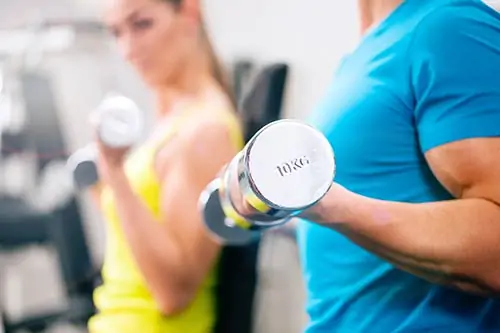
Really, you could cherry pick the studies you cite to support being for or against beets.
A more accurate picture may be the 2016 meta-analysis of 1,038 studies about dietary nitrate which was done by the University of Queensland in Australia (27). Of them, 47 (76 trials) were deemed fit for inclusion in their analysis.
It was about dietary nitrate rather than only this vegetable. However for the keywords they used to find these studies, 4 out of the 8 included the word beet (beetroot, table beet, garden beet, red beet). The other keywords were exercise, performance, nitrates, and nitrate (so no other food sources singled out).
After pooling the results and analyzing, their conclusion was:
“Dietary NO3 supplementation is likely to elicit a positive outcome when testing endurance exercise capacity, whereas dietary NO3 supplementation is less likely to be effective for time-trial performance.”
If juice helps endurance and strength training, that would explain why bodybuilders using beet juice before a workout seems to be a growing trend.
When to drink the juice before a workout? Based on the studies, most athletes were given it 2 hours prior to their testing. This suggests the scientists involved believed it was the optimal time to drink a beet supplement.
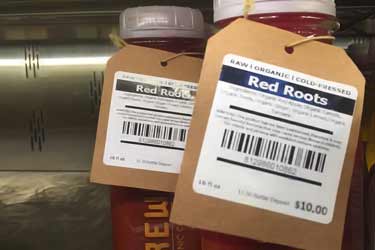
But it’s not just bodybuilders using it as part of their nutritional regimen for buffing up. For some runners, supplementing with this juice has practically become the new Gatorade.
But they’re probably not buying their bottled juice at Walmart, as supermarket sources are often pasteurized and contain less nutrients.
Many athletes prefer using something like the Vitamix 5300 blender to pulverize fresh beets to a liquid. Being the raw form, it’s hard to do better than that.
Others may not have the inclination or time to blend and instead, use supplements. One of the most noteworthy was developed the Dr. John Ivy, who worked with Michael Phelps during the Olympics. Previously known as Neogensis Labs, Ivy’s company today goes by the name HumanN and sells the popular BeetElite nitric oxide activator.
Diabetes
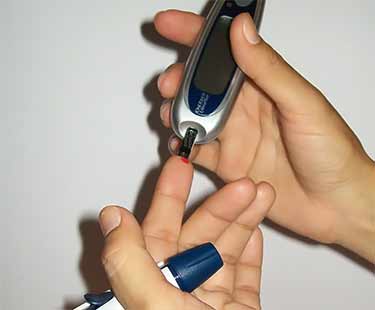
After that, foods rich in alpha lipoic acid take 2nd place.
Why? Well aside from being a potent antioxidant which is both water and fat soluble, there is evidence to suggest it may increase blood insulin sensitivity.
Beets are a rich source of it. However the top 10 alpha lipoic foods have even more. Those other natural sources may actually be preferred if you have either type 1 or type 2 diabetes, since red beetroot is relatively high in sugar.
Dementia and cognitive decline
Inadequate blood flow to any part of the body can create problems. In the case of age-related cognitive decline, it can also play a part in at least some cases.
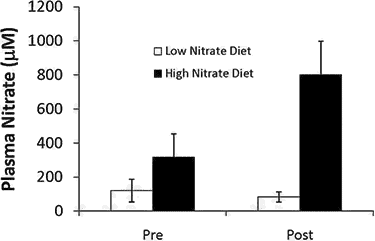
They got the juice with breakfast and at lunch, they had to eat a salad made with spinach and whole beets. On other days they received a low nitrate diet for comparison.
These were 14 seniors who were almost 75 years old, on average. Those on nitrate medications used for angina or sildenafil (Viagra) were excluded, due to adverse reactions excess nitrate intake may have on them.
As you see from the chart above, the different in blood levels are significantly higher in the diet which included eating beets and drinking them, among other natural food sources of nitrate.
The brain scans show blood flow maps. The area with the “statistically significant increases” are marked with the cross-hairs, which are the same location in each for comparison.
There is better flow through frontal lobe gray matter, the gray-white junction, and the white matter (those are the blue and purple areas).
So while you don’t hear a lot about it, there may be brain benefits from beetroot consumption.
“These results suggest that dietary nitrate may be useful in improving regional brain perfusion in older adults in critical brain areas known to be involved in executive functioning.”
Is it good for you?
Setting aside the purported health advantages for a moment, you can review the actual nutrition facts for what a cold pressed 8 ounce glass of the juice will offer you.
Beet juice nutrition facts |
|||
|---|---|---|---|
| Serving Size: 8 fl oz (240 mL) | |||
| Calories | 100 | ||
| Calories From Fat | 0 | ||
| % Daily Value* | % Daily Value | ||
| Total Fat 0g | 0 | Vitamin E | 2% |
| Cholesterol 0g | 0 | Vitamin K | 2% |
| Sodium 190mg | 8% | Thiamin (Vitamin B1) | 4% |
| Potassium 620mg | 18% | Riboflavin (Vitamin B2) | 4% |
| Total Carbohydrate 23g | 8% | Niacin | 4% |
| Dietary Fiber 2g | 8% | Vitamin B6 | 4% |
| Sugars 20g | Folate | 40% | |
| Protein 3g | Pantothenic Acid | 2% | |
| Vitamin A | 2% | Phosphorus | 8% |
| Vitamin C | 15% | Magnesium | 10% |
| Calcium | 4% | Zinc | 4% |
| Iron | 10% | Manganese | 30% |
| Source: Lakewood Organic Super Beet Juice (Cold Pressed, Not From Concentrate)** | |||
| *Percent Daily Values (DV) are based on a 2,000 calorie diet **Contains 1% lemon juice as a preservative, which may affect certain nutritional values by a negligible amount |
|||
It is a good source for a few vitamins and minerals. The downside is that the juice may be bad for you in large servings.
For health as well as athletic benefits, you hear of many people drinking 16 ounces at once, which would equate to a doubling of the above nutritional values. That’s only 200 calories which isn’t horrible, however the 40 grams of sugar might be too much for some, especially diabetics.
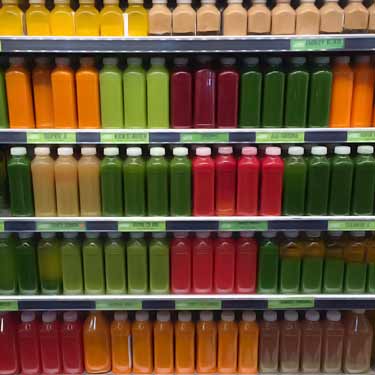
If you want to reduce sugar content, powder might be the better option for you.
Is beet powder as good as beet juice? Some will claim it’s not, because it’s processed and not fresh or raw. However if the powder is made from freeze dried concentrate which is not heated or pasteurized, antioxidants and phytonutrients will be well preserved.
SuperBeets and similar products may actually be healthier for you than raw juicing. Because often times, the active ingredients are concentrated in the powdered form and some of the sugar is discarded with the water content.
Can eating beets turn your urine red?

Betacyanins are responsible for giving the vegetable their signature color. In fact, the concentration of these pigments are so great that a natural food coloring is commonly made from them; beetroot red or E162. You will often see this used in natural and organic food products.
Chances are that beets will not change your urine color. For an estimated 86% to 90% of the popular, there is not a noticeably different color change. For the other 10% to 14% a red color occurs and while the reason why is not fully understood, it is believed to be related the pH of their stomach acid being higher (28).
As a result, the primary culprit in the discoloration – the compound betanine – does not break down in the stomach. It passes through the digestive tract harmlessly, but does create the red urine side effect which is officially called beeturia.
Are there harmful side effects?
The discolored urine or feces is harmless, but there is something else that can be very harmful.
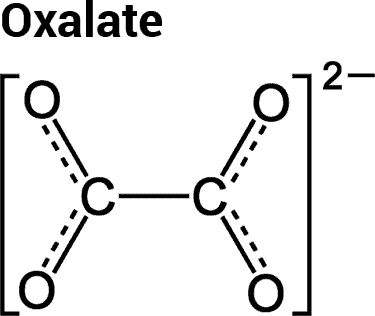
Those who are more susceptible to developing kidney stones are typically advised to be on a low oxalate diet. Examples of high oxalate foods include:
- nuts
- chocolate
- rhubarb
- spinach
- potato chips
- fries
- and beets
The reason these should be avoided/minimized is because in a nutshell:
calcium + oxalates = kidney stones
Only an estimated 8.8% of the U.S. population has had a kidney stone, so they don’t affect most people (29). However for those who do get them, oxalates are believed to play a role in 80% of the cases.
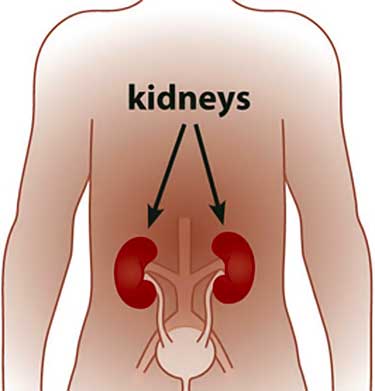
That can become a problem in conjunction with calcium in the kidneys. Together, over time they can form what literally looks and feel like stones.
Food is only responsible for an estimated 20% to 40% of oxalates in our body. Our blood cells create them. Our liver produces them through the processing of protein. Our metabolism of vitamin C also creates it (30).
So even though direct consumption of oxalates may not be the biggest problem, it’s still not good for those who are at risk to eat more of them if they can avoid it.
This is why you must consult your doctor before drinking beet juice if you are at risk for kidney stones. Regular and frequent consumption of it could cause the stones or accelerate their formation.
The other danger is interference with prescription medications. If the juice was used in conjunction with nitroglycerin or similar drugs used to treat angina, a dangerous drop of blood pressure may occur. Using it with ED meds may also be problematic. You should consult your doctor before drinking juice, taking supplements or even eating too much beetroot due to its possible side effect of raising nitric oxide blood levels.
Help for ED?
You may have heard about this benefit of watermelon juice which some men claim. An amino acid it contains, L-citrulline, has been found in some studies to have a Viagra-like effect.
Now that effect may be good or bad, depending on your circumstances.
 For men without erectile dysfunction
For men without erectile dysfunction
Eating something and then getting um, risen, may actually be an adverse side effect. As any grown man today will remember, during their years of puberty, that random raising of the flagpole is downright awkward.
For men with erectile dysfunction
Obviously anything to help raise the flagpole would likely be considered a benefit. If you fall under this category, you may be even more interested in this health benefit of beet juice which some are alleging. The evidence to support it though is very weak, as there have been literally no studies done on this topic.
A search on PubMed for the words “beets” and “erectile dysfunction” yields just 1 result and it’s only indirectly related to the topic. That paper was from 2006: The role of nitric oxide in erectile dysfunction: implications for medical therapy (31)
The word “beet” isn’t even in the text of the paper, so the fact that it even showed up as a match is bizarre. What it talks about is what the title implies… low nitric oxide levels may play a part in the problem, sometimes. The very first sentence of the conclusion is:
“NO is an essential mediator of erectile function, and impaired NO bioactivity is associated with ED.”
After that it talks about how PDE-5 inhibitors (such as Viagra, Cialis, etc.) are the “major first line inhibitors” because they block an enzyme which can cause ED. Though it goes on to say how some men may need alternate therapies which include “NO donors, which promote NO-dependent relaxation of cavernosal smooth muscle” (the cavernosal is the sponge-like tissue which fills with blood).
So is beet juice good for this? Until adequate amounts of research is done, it’s a premature benefit to claim.
How to use it for ED? Those who follow this herbal treatment are said to drink one or two glasses (8 to 16 ounces) two to three hours before sex. Of course, get your doctor’s blessing before trying this unproven remedy.
As a dietary supplement, we like this brand of bulk organic beetroot powder.
These statements have not been evaluated by the Food and Drug Administration. This product is not intended to diagnose, treat, cure, or prevent any disease.

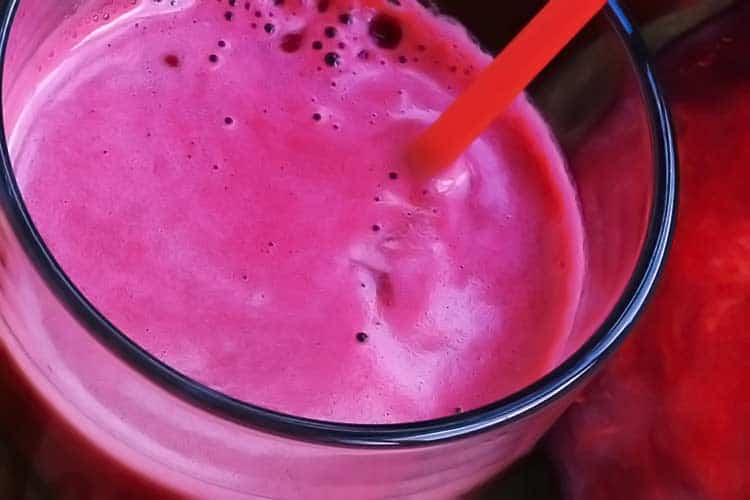
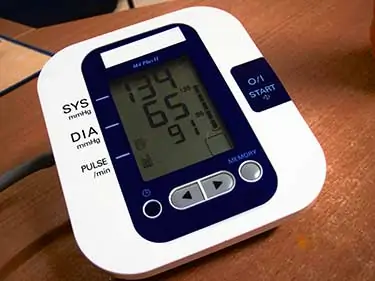

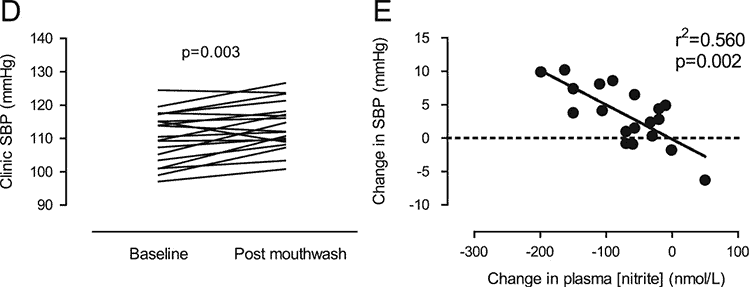

 For men without erectile dysfunction
For men without erectile dysfunction